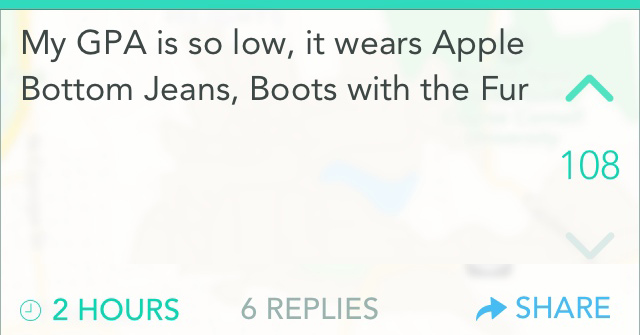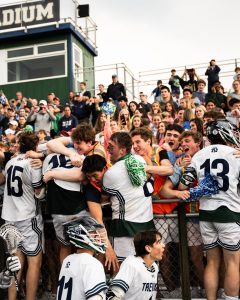Yik Yak downvoted by high schools nationwide
October 16, 2015
In 2013, Furman University graduates Tyler Droll and Brooks Buffington launched a trendy little app called Yik Yak, a location based app where your feed is determined by your one and a half mile radius.
Since its initial launch, it has ushered in ups, downs, and lots of controversy. The app was originally intended to be used on college campuses to promote school spirit and to communicate with like-minded people in the same area.
Now, you might be wondering “well, what’s wrong with that?” But if you know anything about the general demographic of people who use Yik Yak, you might infer that giving high school and college students a tool to anonymously post anything could lead to bullying, harassment, and general misuse. The result? Hurt feelings and offended people.
Because of these problems, Yik Yak teamed up with a Vermont-based company called Maponics to create a system of fences that go around middle schools, high schools, and other places where Yik Yak could easily be misused.
However, Yik Yak does have a couple of interesting upsides. Because the app is location based, it allows people to give real- time updates on important events unfolding around them. For example, if there is an important student government election happening, users can give real time updates on how the election is proceeding and people reading their feed will be the first to know who will win.
Yik Yak is also a great marketing tool for giant gatherings of younger people. Last year, BBYO, an international Jewish youth movement, didn’t discourage their members from using Yik Yak during the convention. Members using the app were constantly talking about how much fun they were having at the event and spreading information about everything happening there. Even the negative feedback proved helpful for organizers to figure out how to improve for next year.
However, the benefits do not always outweigh the drawbacks, of which there are quite a few. Because Yik Yak is anonymous, people can basically say whatever they want without any consequences. This leads to the obvious bullying problem because of Yik Yak’s upvote/downvote system, which keeps posts that people vote “up” for as long as they’re popular.
Yik Yak has the rule that users can’t post people’s full names, but most posters are smart enough to get around that. When posters write offensive posts about people and get lots of upvotes on their posts, there’s no way of getting it taken down. Possibly the biggest flaw of Yik Yak is that it almost relies on people being decent to each other on a regular basis, and that’s just not characteristic of high school users.
Since its release two years ago, Yik Yak has created a few features that set it apart from the rest of the herd. You can now “peek” at other areas, which is a way to look at what’s going on in other places, without the ability to post or vote. Yik Yak has also created a way to differentiate people in comments by putting predetermined avatars while still keeping the app anonymous.













































